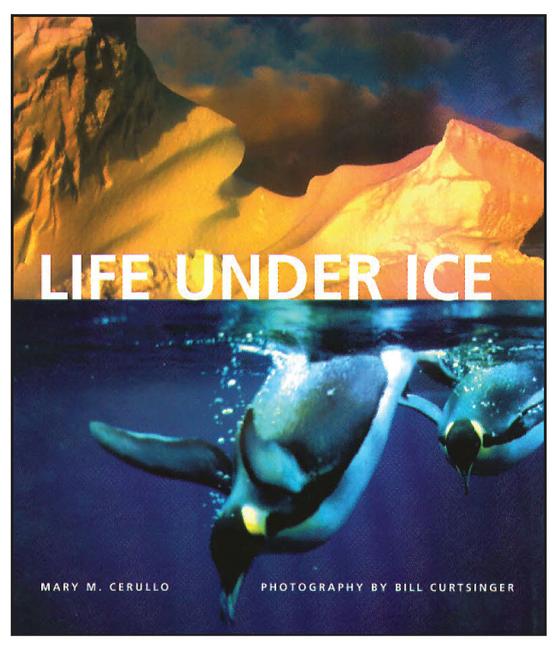Book Description
for Life Under Ice by Mary M. Cerullo and Bill Curtsinger
From the Publisher
Marine photographer Bill Curtsinger has returned to Antarctica a number of times to photograph the animals and plants that survive in the icy, ice-capped waters at the end of the earth. Mary Cerullo shares his story with us, telling what it's like to start a diving trip by cutting a hole in ice eight to ten feet thick, then diving into the chilly depths with the light shining through your entry hole the only beacon to your escape route.
Bill's amazing photographs and his curiosity about the world combine to show us a strange and wonderful part of our earth where some fish survive by having clear blood that acts like antifreeze, jellyfish and sponges and sea spiders grow enormous, the food web is simple, and even minor changes in conditions can affect the the survival rate of baby penguins. We learn how penguins and seals are adapted for life on the ice and under it, how the ice acts like a greenhouse roof for marine plants during Antarctica's summer months, and how it keeps the water warmer than the air during the frigid winter.
Bill meets scientists from all over the world who travel to Antarctica to study not only its marine life, but weather, the stars, climate change and human impacts. This is inquiry-based science, up close -- and often under ice.
A glossary and resource list continue the learning and will lead you to some exciting websites along with an excellent curriculum guide on Antarctica available online from the American Museum of Natural History.


